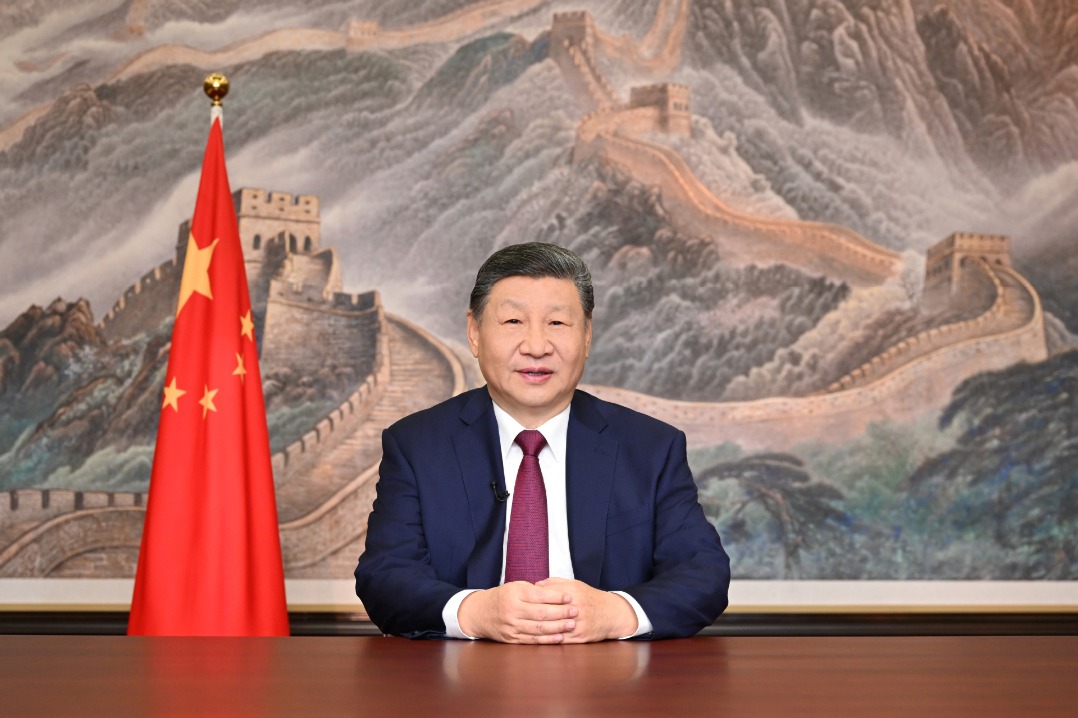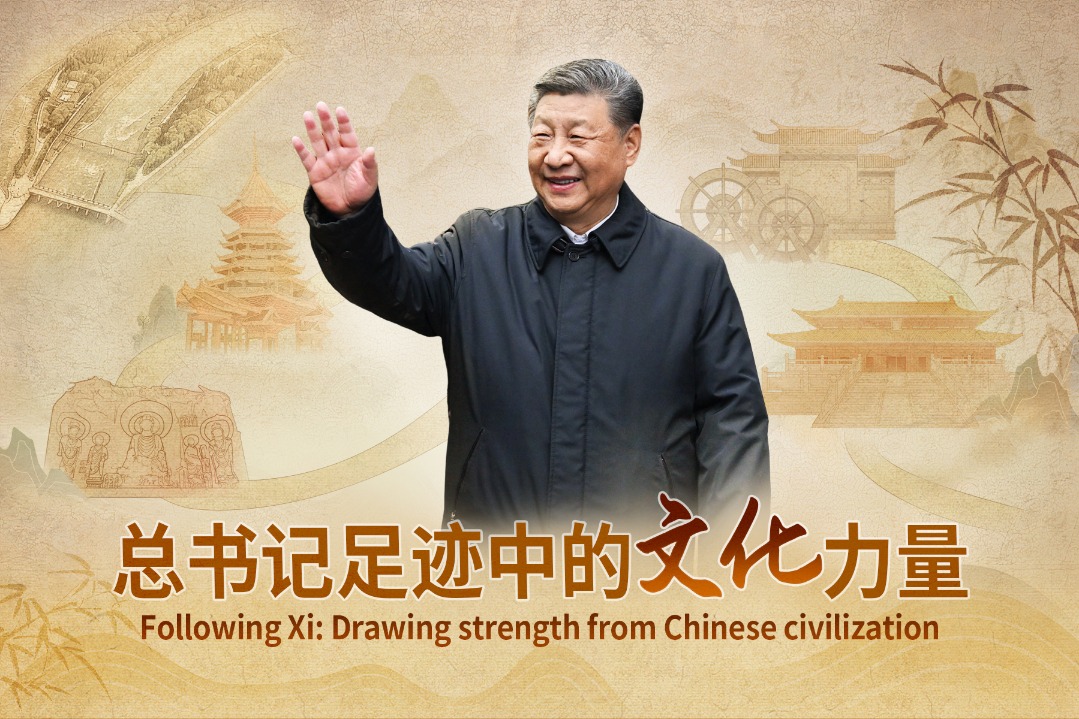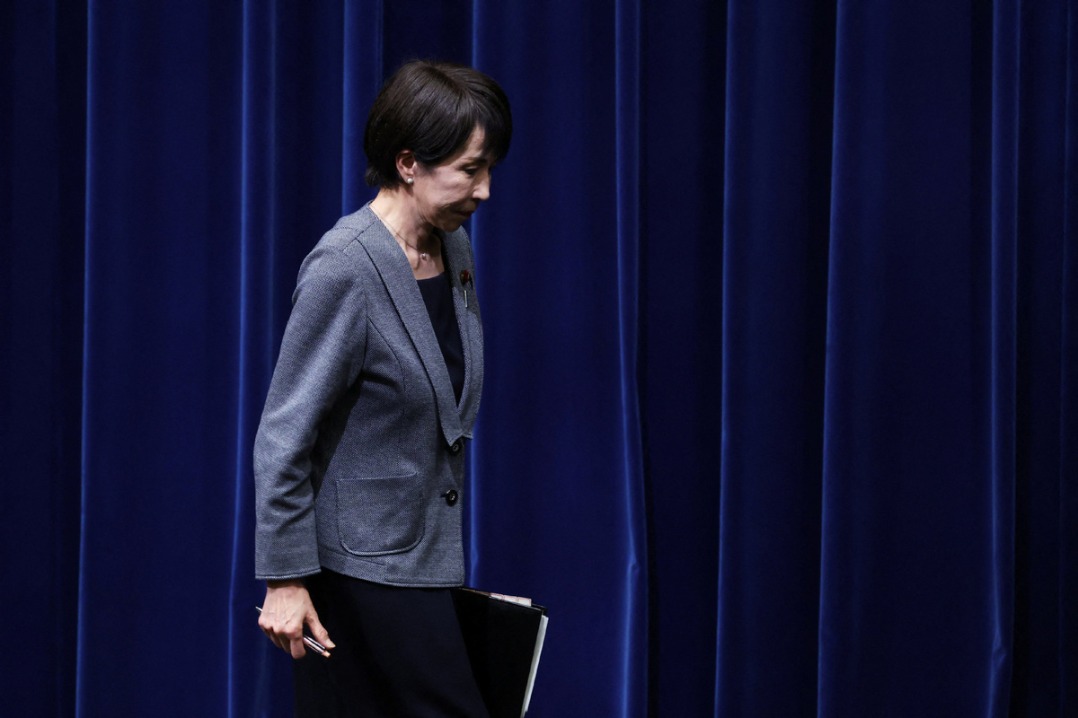Notable development
China's cooperation with West Asia under the framework of the BRI has become increasingly prominent


The Belt and Road Initiative has successfully created a new infrastructure and economic network between China and its partners, including those in West Asia.
China has established strategic partnerships in several fields with many West Asian countries, including exploration projects and physical and digital infrastructure development. West Asia was among the first regions to support the BRI, which aims to improve communication infrastructure between Asia, Africa and Europe. This is evidenced by the efforts of West Asian countries to sign many agreements and memorandums under the framework of the BRI.The objective is for the West Asian region and China to gain mutual benefits and for West Asia to become an important regional and global strategic, logistics and economic center.
China's economic relations with West Asia are focused on energy, foreign investment, trade and technology. Between 2014 and 2019, Chinese-owned companies intensified their investments in energy-related projects in the Gulf countries such as Saudi Arabia and the United Arab Emirates. In addition, China also collaborates with West Asian countries in the field of digital infrastructure. The digital projects pioneered by China in West Asia include telecommunications, 5G connectivity, undersea optical cables and security information systems. In addition, China's relationship with West Asia is also heavily influenced by geostrategic factors. This is because West Asia connects the 21st Century Maritime Silk Road network from the Indian Ocean in South Asia to the Mediterranean Sea, to North Africa and Europe. Strategic areas in West Asia that are vital shipping routes for the Maritime Silk Road include the Strait of Hormuz (Oman and Iran), the Bab el-Mandeb Strait (Yemen and Djibouti) and the Suez Canal (Egypt).
China-West Asia cooperation is not limited to trade and economic activities. It should be emphasized that China has established a comprehensive strategic partnership or strategic partnership with 12 Arab countries and signed cooperation agreements under the framework of the BRI with 21 Arab countries and the Arab League. It is important to note that as many as 17 Arab countries have supported President Xi Jinping's Global Development Initiative, 15 have joined the Asian Infrastructure Investment Bank, and 14 have joined the China-Arab Cooperation Initiative for Data Security. What is certain is that the Sino-Arab joint project will benefit both sides from the point of view of commercial, customs and financial relations both commercially and politically, leading to deeper security cooperation.
At the first China-Gulf Cooperation Council Summit in 2022, President Xi expressed the desire to use the local currency in transactions and trade. Since then, the UAE has negotiated liquefied natural gas deals on the Shanghai exchange in renminbi, while Saudi Arabia is also considering using the renminbi for its oil trade with China. Nevertheless, it is too early to discuss the issue of de-dollarization for now, because most West Asian countries still use the US dollar as a trading and reserve currency.
In recent years, China's role in West Asia has become increasingly prominent in various fields and is not limited to the economy. This is because China sees the region as a major economic partner, especially its energy resources and important geopolitical position. One proof of China's growing influence is its ability and success in brokering a peace agreement between Saudi Arabia and Iran.
In addition to the Saudi-Iranian detente, Beijing brought Saudi Arabia, Egypt, the UAE and Iran into the BRICS group earlier this year. In addition, another proof of China's influence is the entry of several West Asian countries, such as Qatar, Kuwait and Bahrain, into the Shanghai Cooperation Organization as dialogue partners which is part of China's efforts to strengthen cooperation with the West Asian region. At the same time, the interests of the United States have shifted to the "Indo-Pacific". Beijing has good relations with all major countries in West Asia, especially Saudi Arabia, the UAE, Israel and Iran. In China's geostrategic calculations, West Asia is the second most crucial region after the Asia Pacific.
China has become increasingly involved in West Asia. However, Beijing is always careful not to be dragged into the West Asian conflicts directly like the US and other Western countries. This can be seen in the diplomatic support given by China. For example, China has tried to mediate peace between Fatah and Hamas by organizing an Arab-Chinese forum to discuss peace between the two sides in Beijing. A communique was made at the end of the forum, known as the Beijing Declaration, in which Hamas and Fatah agreed to end their division and form a temporary unity government.
At the same time, the joint statement of China and Arab states on the Palestinian issue condemned Israel's invasion of Rafah and the US using its veto power against the Resolution on Palestinian statehood at the United Nations Security Council. During the proceedings at the International Court of Justice in February, China defended Palestinian rights and justice in line with International Law and UN Resolutions condemning Israel's occupation of the Palestinian territories. Since the outbreak of the Hamas-Israel conflict in October 2023, China has stood firm in supporting the two-state solution and calling for a cease-fire in the conflict.
However, to protect its long-term economic interests in West Asia and present itself as a responsible global power, China needs to play a more significant and active role in the security and political dynamics of the region even though it has not displayed aspiration to be a regional security guarantor.
The author is an associate professor and deputy executive director of the Asia-Europe Institute at the University of Malaya and a member of the Belt and Road Initiative Caucus for the Asia Pacific. The author contributed this article to China Watch, a think tank powered by China Daily. The views do not necessarily reflect those of China Daily.
Contact the editor at editor@chinawatch.cn.


































